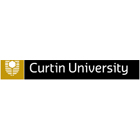Master of Nursing Practice
Master of Nursing Practice
The Master of Nursing Practice is a two-year graduate entry master’s degree that can lead you to be eligible for registration as a nurse with the Nursing and Midwifery Board of Australia. The course consists of four semesters plus a summer term coursework program. It also offers Commonwealth Supported Places…
Categories
COURSE DESCRIPTION
The Master of Nursing Practice is a two-year graduate entry master’s degree that can lead you to be eligible for registration as a nurse with the Nursing and Midwifery Board of Australia. The course consists of four semesters plus a summer term coursework program. It also offers Commonwealth Supported Places (CSP) to domestic applicants, which means part of your course fees are subsidised by the Australian Government.
In this comprehensive program of study, you will cover a diverse range of simulated practice and fieldwork, interprofessional learning, contemporary blended learning and advanced clinical development.
Throughout the course, you will be encouraged to integrate evidence-based theory and clinical practice. Theory content is comprehensive and includes physical, biological, psychological and social sciences. What jobs can the Nursing Practice lead to?
Upon graduation, you can work as a registered nurse in a variety of health settings such as public and private hospitals, community centres, nursing homes, home-based services, and international organisations. Opportunities also exist in clinical education, research and management areas.
What you’ll learn
Apply nursing knowledge within a framework of registered nursing practice with a commitment to evidence-based practice and demonstrate a high level of clinical proficiency to ensure optimum outcomes for individuals, families and communities
Apply critical thinking and reflection to problem solving and clinical decision making for health improvement
Critically analyse scientific literature and health standards in order to reflect on and synthesise complex information and integrate this into patient care while ensuring the ethical management of information
Communicate effectively and establish collegial relationships with intra and interprofessional teams
Use technology proficiently and appropriately to support informed decision makings on therapeutic interventions and clinical practice; proactively seek new information and technologies
Recognise the values intrinsic to registered nurse practice and demonstrate commitment to lifelong learning through critical reflection and the ability to enhance the professional development of self and others
Recognise, evaluate and apply appropriate international and national standards of practice within a local nursing and healthcare context
Recognise the significance of cultural diversity in patient care and articulate and demonstrate respect for individuals’ rights to determine their own journey through healthcare through advocacy and culturally safe practice
Demonstrate a sound understanding of current nursing and health legislation which is relevant to the registered nurse role and work in an autonomous and accountable practice framework as a member of intra and interprofessional teams and demonstrate leadership skills in an ethical, moral and professional manner, as expected by the wider community in the interests of public safety.
Professional recognition
This course is designed to meet the regulations of the Nursing and Midwifery Board of Australia. When you successfully complete the course requirements, you are eligible to apply for registration as a Registered Nurse (Division 1) with the Nursing and Midwifery Board of Australia.
REQUIREMENTS
Applicants must satisfy the following criteria to qualify for one of our postgraduate coursework programs: Completed a bachelor degree awarded by a recognised tertiary institution. Some postgraduate courses may require a completed bachelor degree in a relevant field.
Certificate in Advanced English (CAE): Grade C; and Pearson Test of English Academic: 65. IELTS (International English Language Testing System) – Listening, Reading, Writing, and Speaking – 7.0; Overall band score 7.0; TOEFL (Test of English as a Foreign Language) 79 (overall) Reading 13 Listening 13 Speaking 18 Writing 21.
EDUCATIONAL INSTITUTION
Curtin University is Western Australia’s largest and most culturally diverse university with Australia’s third largest international student population. Around 60,000 students from more than 130 countries study a Curtin degree, at locations including Perth, Margaret River, Kalgoorlie, Sydney, Malaysia and Singapore. Our cultural diversity adds a rich and valuable dimension to the campus atmosphere, preparing all graduates to live and work effectively in an increasingly global environment. We offer a range of industry-aligned undergraduate and postgraduate courses in business, humanities, health, engineering and related sciences. We also have a long-standing focus on Aboriginal and Torres Strait Islander education and culture, supported by our Centre for Aboriginal Studies.Curtin is widely recognised for its practical research that is focused on solving timely, real-world problems. In recent years our research activity has grown significantly, driving our rapid rise up the international university rankings.As a university that never settles, we will continue to develop existing partnerships and establish new ones in areas relevant to our research and teaching.

